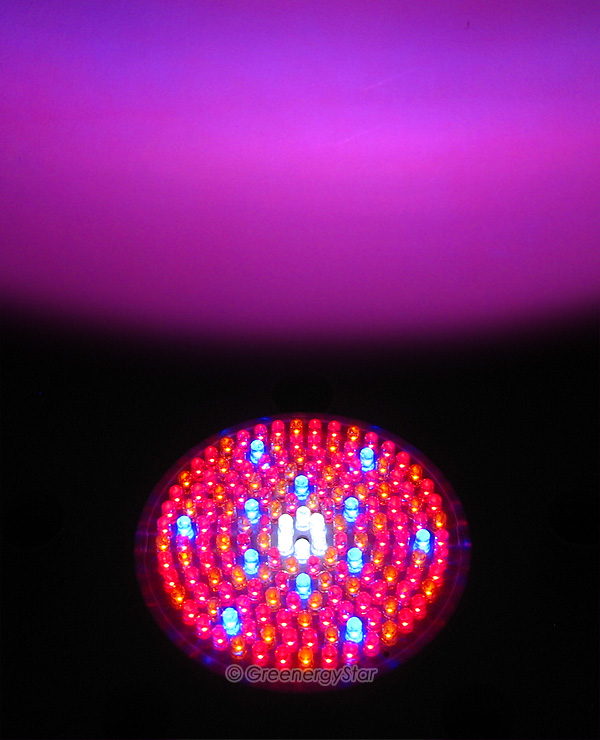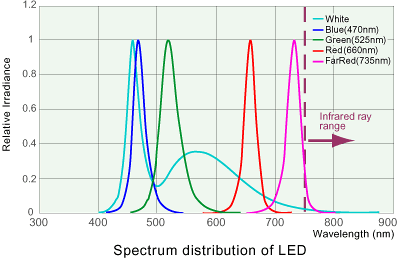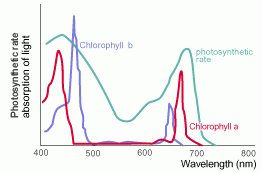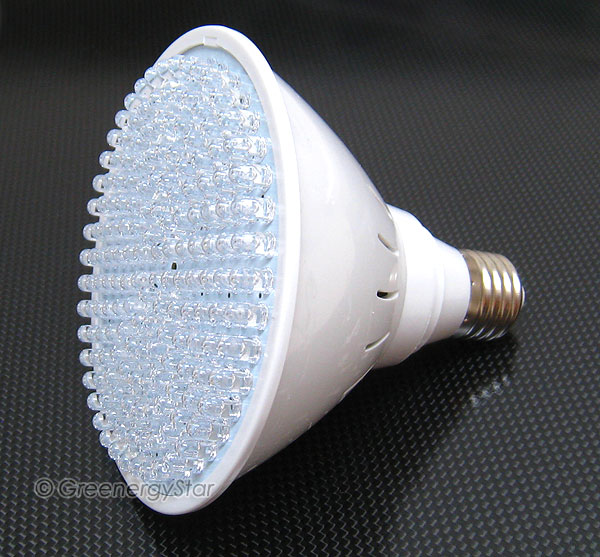
Feature:
Wavelength (Quad-Band):
Red: 660nm
Orange: 612nm
Blue: 470nm
LEDs are rated at 10000mcd
Ratio: 17 Red , 8 Orange , 2 Blue and 1 White
Total LED: 168pcs Quad-band (102 Red, 48 Orange, 12 Blue and 6 White)
100,000 hours of life
12 years of continuous operation
Energy consumption is 5-10% of a typical light bulb (depending on wavelength)
Red light stimulate flowering and seed production
Orange light stimulate growth of carotenoids to make plants stay healthy
Blue light stimulate stem and leaf growth
White light are used to fill out other spectrums and acts as natural sunlight.
Minimum HEAT ( Energy Efficient )
Ultra Light weight (138g) with fireproof grade plastic to
Better Heat dissipation with 6 vent holes
Better space utilization to fit in fixtures
110 ~ 240V Automatic Switching
Standard E26 Base
Perfect for green houses
Specification:
| |
LED |
168 pieces |
| |
Power |
16W |
| |
Size |
Diameter: 12cm
Height: 12cm |
| |
Hours |
100,000 hours |
| |
Wavelength |
Red: 660nm
Orange: 612nm
Blue: 460nm
White: 6500k |
| |
mcd |
Red: 10000mcd
Orange: 10000mcd
Blue: 10000mcd
White: 10000mcd |
| |
Recommended Height |
2 feet to 8 feet |
| |
Recommended Coverage |
5 square feet @ 5 feet |
| |
Coverage |
1 square feet @ 2 feet
5 square feet @ 5 feet
9 square feet @ 8 feet |
|
The LED Grow Light is convenient to use. You can twist it into any normal socket to replace any incandescent or halogen light bulbs. The LED light bulbs have a super long life that last for 100,000 hours. That would be more than 12 years of continuous operation. Since LED is in a solid state (no filament) it is almost indestructible (not if you intended to destroy it). LEDs are about 10 times the efficiency of a typical flashlight bulb, so you get more light and you can cut down your electric bill at the same time.
Why LEDs?
High Efficiency
The wavelengths of some LED are compatible with the absorption peak of the pigments involved in photosynthesis and photomorphogenesis. Only necessary light for those physiological functions can be irradiated.
Low Thermal Irradiation
LED in the visible light area contain little heat rays, allowing for short-distance irradiation.
Reduced Energy Consumption and Long Life
LED substantially reduce power consumption. Depending on the operating environment, an LED can provide thousands of hours of light.
Life Of LED
Since an LED emits light through a semiconductor device, its life is many times longer than that of other light sources (however, it can be affected by the operating environment).
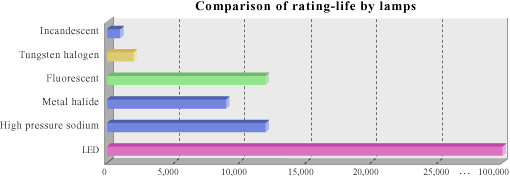
Spectral Distribution Comparison
LED is developed to emit a specific color efficiently by adjusting the materials used in the semiconductor compounds. The wavelength of an LED is relatively fixed, but not as much as that of a laser beam. Another distinction, LED in the visible range contain little heat rays. Therefore, they radiate almost no heat in the direction of emission. Below are comparison of LED and other lamps' spectral Distribution:
Photosynthesis
lighting energy is used in an important photoreaction, the synthesis of carbon dioxide and water into organic compounds. The pigments called chlorophyll play a role in this reaction by absorbing light.
Below is a picture that illustrate the effect of different on sunflowers:
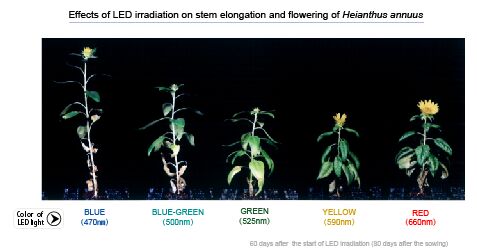
Choose the right color for your plants
- Blue light stimulate stem and leaf growth
- Red light stimulate flowering and seed production
- Green and Yellow light are not as useful
Carotenoid Synthesis
Carotenoids are required for plants to stay healthy. They have the ability to absorb destructive free radicals from solar damage and chlorophyll production. With the presence of carotenoid, plants will be able to produce more chlorophyll which will result the plant having a deeper green. Carotenoid has an absorption peak of 612nm (Orange light), in addition for maintaining the plants health, they will also help in photosynthesis because the energy they absorbed will be passed to chlorophyll.
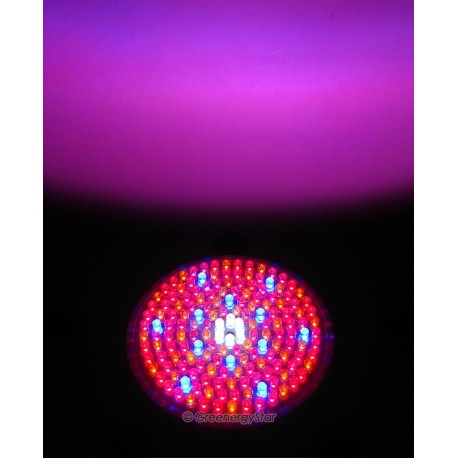 View larger
View larger



